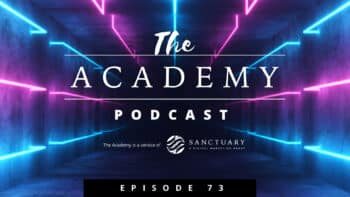
On that note, I just want to clarify something about Twitter. Many people know the fact that to rank well on the search engines you need to get links to your site. The more links the better. A link to your site (in the eyes of Google) is simply “a vote” that tells the search engine that someone thinks you have something of value. The more links, the more they relate back to other high value sites and the more the links relate to your content niche, the more Google will see that you have something of value to offer in your niche. The result will be higher rankings for your site because Google’s job is to return highly relevant search results. Linking is not the only answer to search rankings, there are hundreds – maybe even thousands – of things that affect your rankings. But linking is a major ingredient in the “secret sauce” of SEO.
Now, regarding Twitter. Many people think that when you post on Twitter you’re creating links back to your content and to others that you Tweet about. This is true in the human sense but not with the search engines. Most of the time this holds true for blog comments too. Linking to your site from another blog’s comment area will return some value in that other people might find your site and eventually link there if they see value, but the actual link from the comment has zero value in regards to ranking in the search engines.
See, there is an HTML tag on Twitter links that’s inserted automatically. To illustrate, it looks like this: rel=nofollow. This HTML tag tells the search spider that this is a link that should not be followed. Most of the time this tag is included on blog comments too because it devalues how Google ranks sites. Here’s the reason, Google doesn’t want to make your life too easy. Links are a core part of the Google’s ranking algorithm and they don’t want to make it too easy for you to manipulate that data. Posting links to your content on Twitter and linking back from blogs is EASY. If it was this easy, we could all manipulate the listings and Google would soon start returning junk results and people would start to use another search engine. They obviously do not want this to happen. (Read more about comment spam here)
The most highly prized link in the eyes of Google is presented like this (and it’s extremely HARD to get):
a) A link on a site that relates to your content or industry niche.
b) A link within the body of the content (an inline link) not in the sidebar or on a “links” page.
c) A link with your keywords in it. (Example: Click here for my advice about Twitter)
d) A direct link to your content page, not your homepage.
I hope this has clarified a few things for those who might thinking that posting links on Twitter and blog posts helps with search rankings. Let me clarify that they CAN help you by driving traffic and eyes to your site, but they have no direct effect when search engines are concerned. You should use Twitter and continue to make comments on blogs because they are valuable practices, but not regarding SEO.
Most Popular Articles

Seeing Favicons in Your Google Search Results? Here’s Why…
Have you noticed anything different in your Google Search results lately? Google added tiny favicon icons to its organic search results in January. It was…

Business Growth and Digital Marketing News & Tips 4-14-24
Did you know? It’s five to twenty-five times more expensive to acquire a new customer than to retain an existing one. Increasing customer retention by…

Business Growth and Digital Marketing News & Tips 3-28-24
With the desire for precise measurement tools to determine ROI, there has been a rise in attention metrics. These metrics, which often utilize eye-tracking data,…








